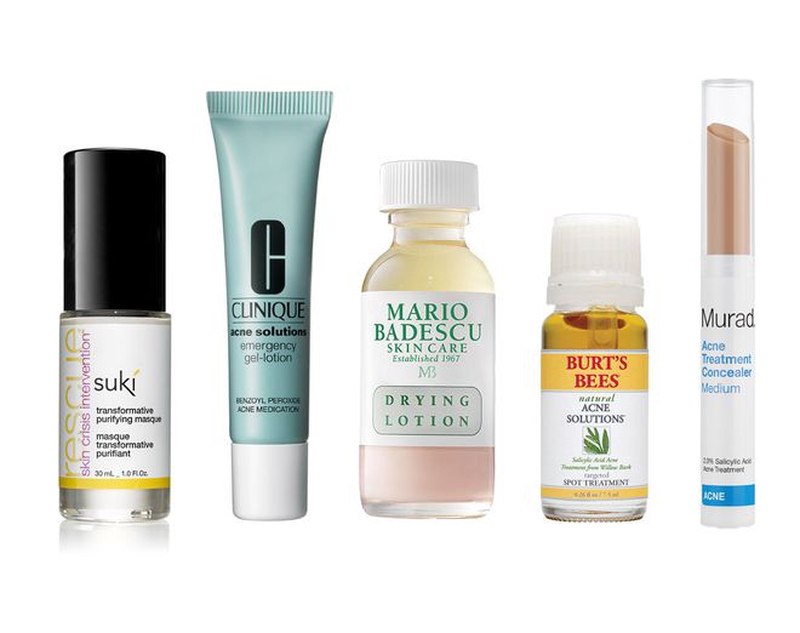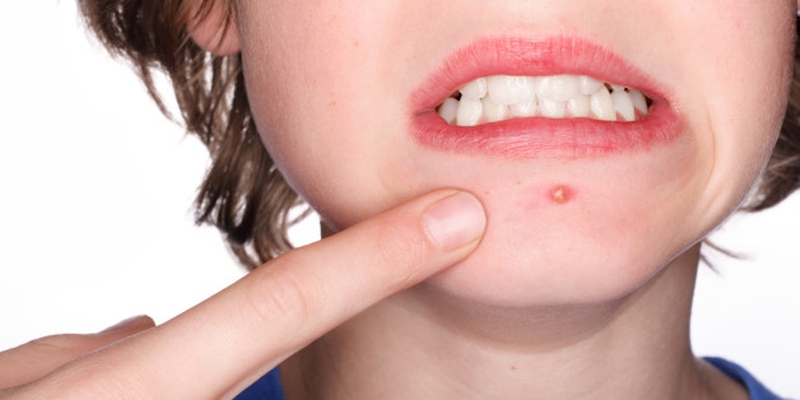Acne is a common skin condition that most people feel they can do little about. Either they feel their acne is too severe to be treated or not severe enough to see a doctor about, seeing a dermatologist can really benefit you. What will a dermatologist do for acne? Learn that in this article.

What Can a Dermatologist Do for Acne?
For mild acne
Mild acne can generally be treated with over the counter or prescribed topical medications. This type of acne usually only shows up as a few whiteheads, blackheads, or pustules. These medications will often contain benzoyl peroxide or salicylic acid. If overused, these medications can cause redness and other skin irritations, but they do need to be used regularly.
For moderate acne
Moderate acne is considered when you have a number of whiteheads, blackheads, pustules, and papules. Topical antibiotics, retinoids, oral antibiotics, or oral contraceptives are typically prescribed to treat mild to severe acne. These treatments may be combined or used alone.
For severe acne
Severe acne is characterized by deep cysts and inflammation that can cause damage to the skin and leave scars. Some oral contraceptives or antibiotics can be prescribed to treat severe acne, but it is more common to be prescribed Isotretinoin. This is a vitamin A analog that is taking for up to 16 weeks. However, women who are pregnant or may become pregnant should not be prescribed this medication.
Acne procedures
Chemical peels or laser resurfacing may be recommended for those who suffer from acne. Chemical peels can decrease the number of whiteheads and blackheads while also improving the skin tone and luster. This treatment can, however, be painful and do little for scarring. What can a dermatologist do for acne and scarring? May be laser resurfacing, which can help improve the skin's appearance by reducing lines and scars. This treatment uses a laser to remove damaged skin, but it comes with some risk of burning and permanent depigmentation.
What Do a Dermatologist Advice for Treating Acne?
Spot treatments. To help keep an acne flare up under control, use a spot treatment that contains a blend of salicylic acid and pore cleaner.
Painful pimples. Use a topical corticosteroid as well as a spot treatment that contains benzoyl peroxide. The benzoyl peroxide will kill off acne-causing bacteria to keep pores unclogged.
Daily treatments. Use a treatment that contains alpha lipoic acid, DMAE, zinc, salicylic acid, and glycolic acid. This blend will clean the skin and prevent oil buildup so that your skin looks fresh.
Quick treatments. For pimples that you need to have gone in a day or two, schedule an appointment with the dermatologist. They can inject a shot of cortisone into the area that will clear away pimples in about 24 hours.
Stubborn acne. Photodynamic therapy can be an option to help treat recurring acne. This treatment uses a blue light to shrink oil-producing glands. A 5-aminolevulinic acid medication is used as well to help decrease the oil production and reduce the appearance of acne.
Reduce your exposure to germs. Keeping your hands clean can reduce bacteria reaching your face. It is also recommended to wipe down cell phones that can be a breeding ground for germs and bacteria.
Watch what you eat. While many people blame greasy foods for their breakouts, the truth is that dairy and turkey can actually be a common cause of skin breakouts. Cheese, milk, and yogurt can cause breakouts because of the hormones found in these products. What can a dermatologist do for acne caused by foods? Most dermatologists will recommend eliminating or limiting the consumption of common acne causing foods and beverages.
Things You Should Never Do for Acne
Don't pop them. Popping the cysts or nodules which are the painful bumps deep under the skin can do a lot more harm. Popping your pimples can lead to scarring and can make it take longer time to heal.
Don't touch them. Pimples located between the eyebrows and near the corner of your mouth should not be touched and never popped. The acne located in these areas are prone to become infected which can lead to blood clots, stroke and even death.
Covering up. When you are trying to cover up your acne, you want to be sure to use the right products. Under eye creams are often oil based since this area is often dry, which can make your acne worse. Instead, use a light, pore-blocking makeup.
Wash your makeup off. Makeup will clog your pores, which can result in more acne. You want to be sure to remove any makeup before you go to bed so that your skin can naturally heal itself.
Wash after you workout. After you workout, you want to get into the habit of washing your face. This will reduce the amount of bacteria that can build up on the face from sweating.
Don't over wash. Washing your face too often can actually make it easier for bacteria to enter the skin. Exfoliating with a cleanser that contains salicylic acid too often will not only leave your skin dry and red but, will also continuous remove the surface oils that keep bacteria out.
Clean your pillowcases. What can a dermatologist do for acne? He might be recommending you wash your bedding more often. Sleeping on dirt pillowcases can lead to more or worse acne.
Clean makeup brushes. Dirty makeup brush can transfer a significant amount of bacteria to your face. Get into the habit of at least deep cleaning your makeup brush every two weeks and consider using a daily spray to sanitize them.
Use a clean washcloth. You don't want to reuse the same washcloth on your face. Using the same washcloth that has been left in your shower will only transfer all the bacteria that has built up on it from the damp and steam to your face.
Clean your cell phone. You hold your phone close to your face on a daily basis so you want to make sure you keep it clean.
Keep your hats clean. Just as you would wash any of your other clothing, you want to be sure to wash your hats as well. Hats and helmets can quickly build up bacteria that can transfer to your face and lead to acne.
Touching your face. Break the habit of constantly touching or rubbing your face. This can lead to the spread of bacteria that exist on your face.
Wear sunscreen. You want to protect your skin from the sun, but be careful of what product you use. Most sunscreens are oily, which is not good for acne, so you want to consider using a powdered based sunscreen.
Hair products. If you use hair gels, mouse or leave in products, you want to avoid using these too close to your hairline. These products can clog your pores and increase the acne along the hairline.
Skip the DIY treatments. Some acne can be caused by hormonal imbalance, so DIY home remedies are not going to work. It is always best to speak with a dermatologist to discuss the best treatment for your type of acne.


View All Comments /Add Comment